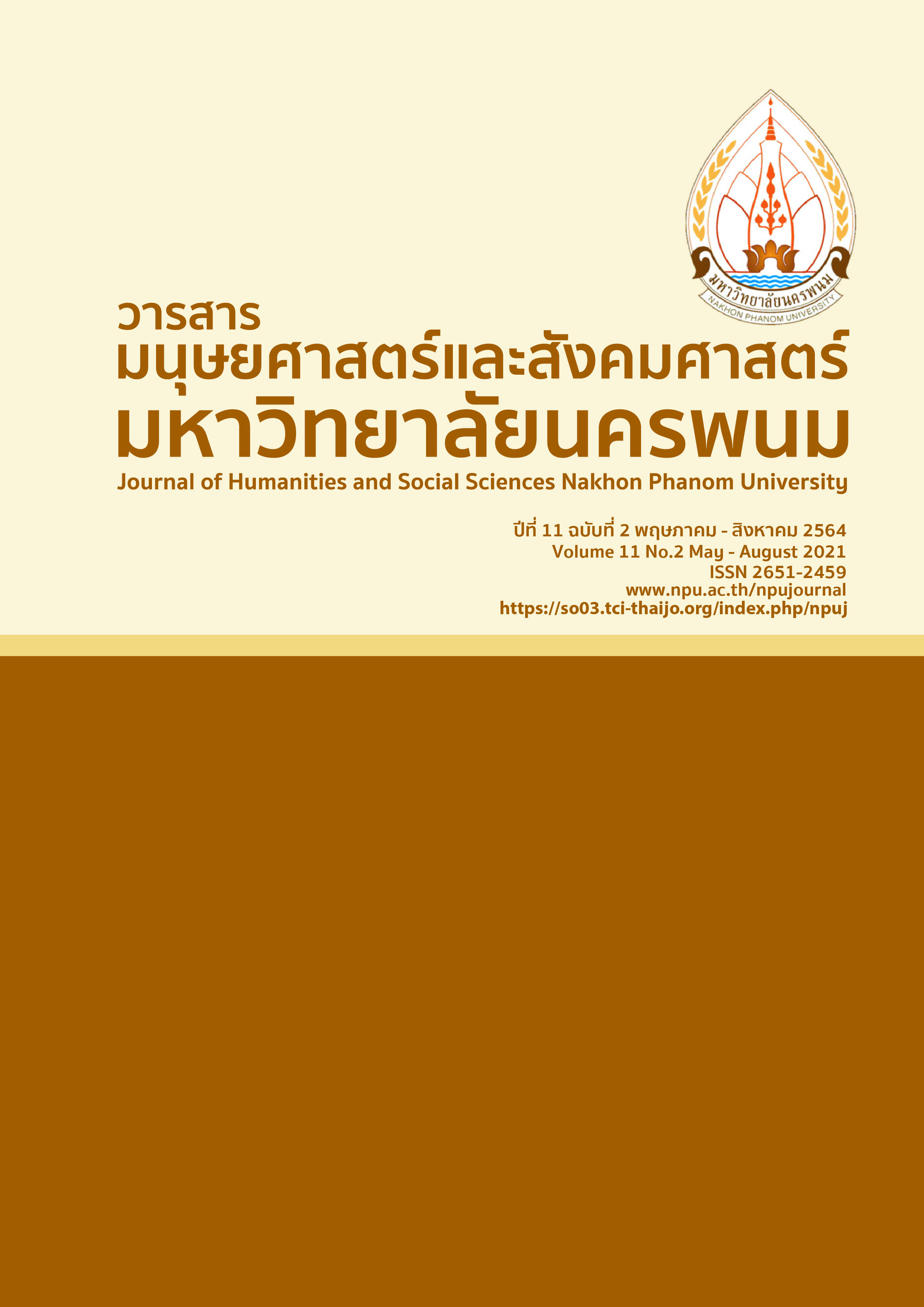Linguistic Strategies for Communicating Otherness’s Ideology in the Ethnic Discourse
Main Article Content
Abstract
The objective of this research paper aimed to study the linguistic strategies as for communicating the ideology of otherness occurring upon in the ethnic discourse in Isan Region. Data were collected from documents and publications including documents complied by government agencies, history books, and tourism promotion brochures. The research applied adopting the otherness ideology and the linguistic strategies. The results revealed that the otherness ideologies were consist of two sub-ideologies: the construction of the otherness between the government and ethnic groups, and the construction of the otherness within the ethnic groups. In addition, the results revealed that there were two language strategies including; 1) lexical choice: used of country names and ethnonyms as originally intended, used of words to classify people and used of terms or status in ethnic groups 2) system of address as for communicating the ideology of otherness: racism and prejudice. In this regard, the use of language strategies in discourse considered as language as a mean of communication to convey a set of ideas or ideologies that will help the creators of discourses that change according to the context of society in each period. The result guided us to understand the set of ideas, and the accumulation of ideology to become a social practice about looking at other groups as “otherness” from the past to the present.
Article Details
References
Angkhaphanitkit, J. (2014). Kān wikhro̜ khō̜khwām [Discourse Analysis]. Bangkok : Thammasat University.
Charoensin-o-larn, Ch. (2002). Wāt kammakān phatthanā : ʻamnāt khwāmrū khwām čhing ʻēkkalak læ khwāmpen ʻư̄n [Development discourse: power, knowledge, truth, identity, and otherness]. Bangkok : Witphasa.
Hongsuwan, P. (2007). Kān khrang nưng wādūai tamnān kap watthanatham : rūam botkhwām thāng khati chon witthayā phāp chāi nai miti rư̄ang ʻattalak chāttiphan phēt wāt kam withī khit læ sanyalak. [One upon a time whit the Legend and Culture: Collection of Folkore Articles Projection in the Dimension of Identity, Ethnicity, Gender, Discourse, Methodology, and Symbol]. Bangkok : Chulalongkorn University.
Lueang-a-ramsey, P. (2003).ʻAttalak chāt læ khwāmpen chāi khō̜p [Identity, ethnicity, and marginalization]. Bankok : Sirindhorn Anthropology Center.
Phongsaphit, A. (2005). Sārānukrom Thai samrap yaowachon lem yīsipsām [Thai Encyclopedia for youth, Volume 23]. Bankok : Dan suttha kanphim.
Phumisak, C. (2013). Khwāmpenmā khō̜ng kham Sayām , Thai Lāo læ khō̜m læ laksana thāng sangkhom khō̜ng chư̄ chon chāt [The history of Siam, Thai, Laos and Khmer, and the social characteristics of ethnic names]. Bangkok : Chon niyom.
Premsrirat, S. (2004). Phǣnthī phāsā khō̜ng klum chāttiphan tāng tāng nai prathēt Thai [Ethnolingguistic Maps of Thailand]. Bangkok : Kurusapa Printing Ladphrao.
Samutkhup, S. and Kittiasa, P. (1999). “khon chāi khō̜p : chīwit læ chumchon khō̜ng khon ngān Thai nai Yīpun” nai mānutsayawitthayā kap lōkāphiwat : rūam botkhwām. [“Marginalized people: the life and community of Thai workers in Japan” in Anthropology and Globalization: Collection of Articles]. Nakhon Ratchasima : Thai study room, Institute of Social Technology Suranaree University of Technology.
Songsiri, V. (2016). Lāo nai mư̄ang Thai [Laos in Thailand]. In Muangboran Jouranl. 3(2),77-88.
Sriphana, T. (2005). Wīatō̜ kīeo nai prathēt Thai kap khwāmsamphan Thai - Wīatnām. [Vietnamese in Thailand and Thai-Vietnamese Relations]. Bangkok : Institute of Asian Studies, Chulalongkorn University in collaboration with the Institute of Southeast Asian Studies.
Sunthonphesat, S. (2003). Chāt phan samphan : nǣokhit phư̄nthān thāng mānutsayawitthayā nai kānsưksā ʻattalak klum chāttiphan prachāchāt læ kānčhat ʻongkō̜n khwāmsamphan thāng chāt [Ethnic Relations: Fundamental Anthropology in the Study of Identity, Ethnic Groups, Nations and Organization National relations]. Bankok : Mưang boran.
Thongthao, P. (2011). Phāp khon chāi khō̜p nai wannakam yaowachon. [An image of marginalized people in youth literature (Unpublished Master’s thesis)]. Srinakharinwirot University, Bangkok, Thailand.


